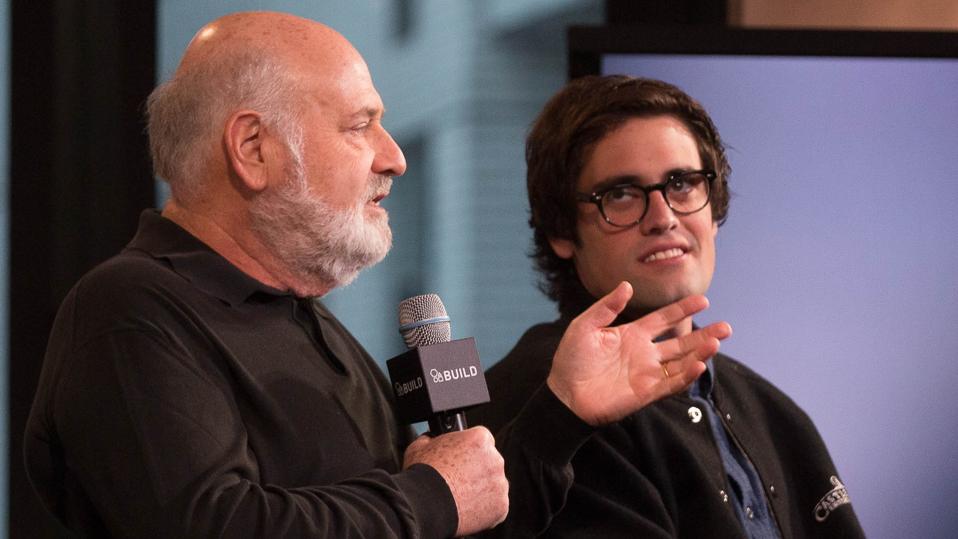Carrol Chang, recently Uber’s global leader for drivers, takes the reins of a ten-year-old startup recently in need of a growth kickstart.

Jeremy Johnson will remain an Andela board director as Carrol Chang takes over as CEO.
Andela
Six years after Jeremy Johnson cofounded startup Andela to help companies find remote workers in Africa, Latin America and other emerging markets, he thought his big moment had finally come.
Covid-19 sent workers home and forced companies to be fully remote during lockdown. Demand for competitively priced contractors skyrocketed. Andela, which had started as an accelerator business to train and place such technically trained workers, was now one of the leading marketplaces to find and manage such talent — and business was booming. By the fall of 2021, SoftBank led a $200 million Series E funding round, valuing the startup at $1.5 billion.
Then, as workers began returning to offices and rising interest rates helped to turn off the spigot of easy capital for unprofitable tech companies, that hiring demand dried up overnight in 2022. Andela’s business hit the emergency brakes. When Andela appeared on the Forbes Next Billion Dollar Startups list in 2019, the company’s sales were estimated around $50 million. Its annual recurring revenue sits a bit north of $100 million today – meaning it just barely doubled in five years.
Today, after two years spent regrouping, Andela’s future looks a bit brighter: sales are up 15% so far this fiscal year, buoyed by the generative AI boom and a long-term need for flexible talent that Johnson is convinced will make the remote debate “a silly conversation” a decade from now. Andela still has more than half that funding round in the bank. “We are nowhere near what’s possible or what’s necessary to become a global player in this space,” Johnson said. “It’s going to have its breakout at some point, and it feels like this could be it.”
If he’s right, and Andela has a shot at becoming the next big marketplace, it won’t be under Johnson’s charge. The startup has tapped Carrol Chang, a longtime Uber executive who most recently has led its global driver and courier operations, as its new chief executive.
“The first and leading filter for me has always been, ‘Is this something where I feel like I’m doing work that can make an impact on the world?’ And this was just an immediate match,” Chang told Forbes in her first interview on the job. “I am really excited because when you think about talent, it’s the largest spend for many companies, and it’s critically important to get right.”
While at Uber, Chang led the operation to bring drivers onto the platform in 2021 after pandemic shutdowns. Riders were returning, but without winning back those contractors who had turned to other jobs in the interim, Uber wouldn’t have cars for them. Chang and her team went on a listening tour and enticed drivers back through a combination of better product features, marketing and technical support, along with improvements to their user experience and communications. At her departure in May, Uber’s driver and courier ranks had swelled to 7.1 million, up 25% from 5.7 million a year previously and double its 3.5 million in 2021, per Uber’s earnings reports.
“It was a wakeup call throughout the company that we had to get on the streets ourselves, and get behind the wheel,” Chang said. “We had to do the actual work of getting very close to the lived experience of our users.”

Carrol Chang is Andela’s new CEO.
Carrol Chang / Andela
Now Chang plans to embark upon a similar process among Andela’s customers, which include Cloudflare, Goldman Sachs and ViacomCBS on the employer side, and a pool of about 150,000 contractors on the talent side. About 60% of those workers for hire are in Africa and Latin America, but Andela spans 135 countries overall, the company claimed.
Founded by Johnson and five others, including several Africa-based entrepreneurs, Andela was originally more of a talent accelerator and direct staffing provider. The company would train junior developers in hubs like Kenya or Nigeria, providing housing and covering other expenses, then place them in multi-year contracts with a U.S. business, passing on a one-third chunk of proceeds to the individual and keeping a substantial portion for itself.
Andela was able to reach more than $20 million in revenue with that approach, placing thousands, Johnson said. But it eventually hit a wall in the face of growing competition from bootcamps and more short-term focused contractor marketplaces like Fiverr and Upwork, contributing to a saturation of the junior-level talent pool. In 2019, Andela shifted away from running its own training program, cutting ties with hundreds of contracted junior developers, as Quartz reported; then the pandemic struck, and Andela’s business picked up again.
Today, Andela operates more of a direct marketplace, connecting talent trained anywhere with its pool of paying corporate customers and then providing software to track and manage their performance over the contract term. The average worker placed through Andela stays 18 months on a project, the company said, saving as much as 106 hours of labor. The company claims its workers complete projects, like a new app release or revamped user interface or website, about one-third faster than if using a traditional staffing model, according to a recent Forrester report commissioned by Andela.
Such “adaptive hiring” will prove more attractive to businesses in the AI era, Johnson and Chang argued, as companies will look to fill specific skill gaps in machine learning or working with large language models like ChatGPT. Andela is using AI itself to learn from those placements and improve how fast and how well it can surface more qualified candidates as it works with a company, Chang added. “Being a services company helping you find offshore talent, that’s not exciting to me,” she said. “I came to Andela because our technology is the way we transform this space, and we are in the extremely early innings of that.”
Of course, Andela’s model — connecting contractors to businesses that might otherwise hire full time employees — is not without controversy. Its historical take rate, the portion of a contract it kept for itself, has faced pushback from workers in Africa, as reported in 2020 by Big Technology journalist Alex Kantrowitz. Andela has since shifted its model to pass along about two-thirds of proceeds to its contractors, Johnson said, since it no longer provides training, housing and other expenses. But the contractor marketplace isn’t universally beloved more broadly: Uber, Chang’s previous employer, has also faced controversy over its designation of drivers as contractors.
In response, both Johnson and Chang affirmed their belief that Andela’s mission is one that helps create opportunity, providing locally competitively priced work to qualified individuals who might not otherwise find it. That message was echoed by one of Andela’s key backers, the Chan Zuckerberg Initiative, an impact investment firm cofounded by Mark Zuckerberg and Priscilla Chan. “Andela has always been at the forefront of connecting brilliance with opportunity across the globe, and I’m excited for Andela’s next phase under the leadership of Carrol Chang,” wrote CZI managing partner and Andela board director Vivian Wu in a statement.
And it’s Chang’s business to run: Johnson will remain on Andela’s board of directors and provide support but will no longer have a full-time executive role. “No plans just yet, but I suspect at some point it will be difficult for me not to focus my energy on something intensely again,” he said.
Would Johnson, who previously took online education business 2U public in 2014, consider working on a third startup next? “It’s possible, but there are a couple of people in my life who hope I don’t,” he said.


